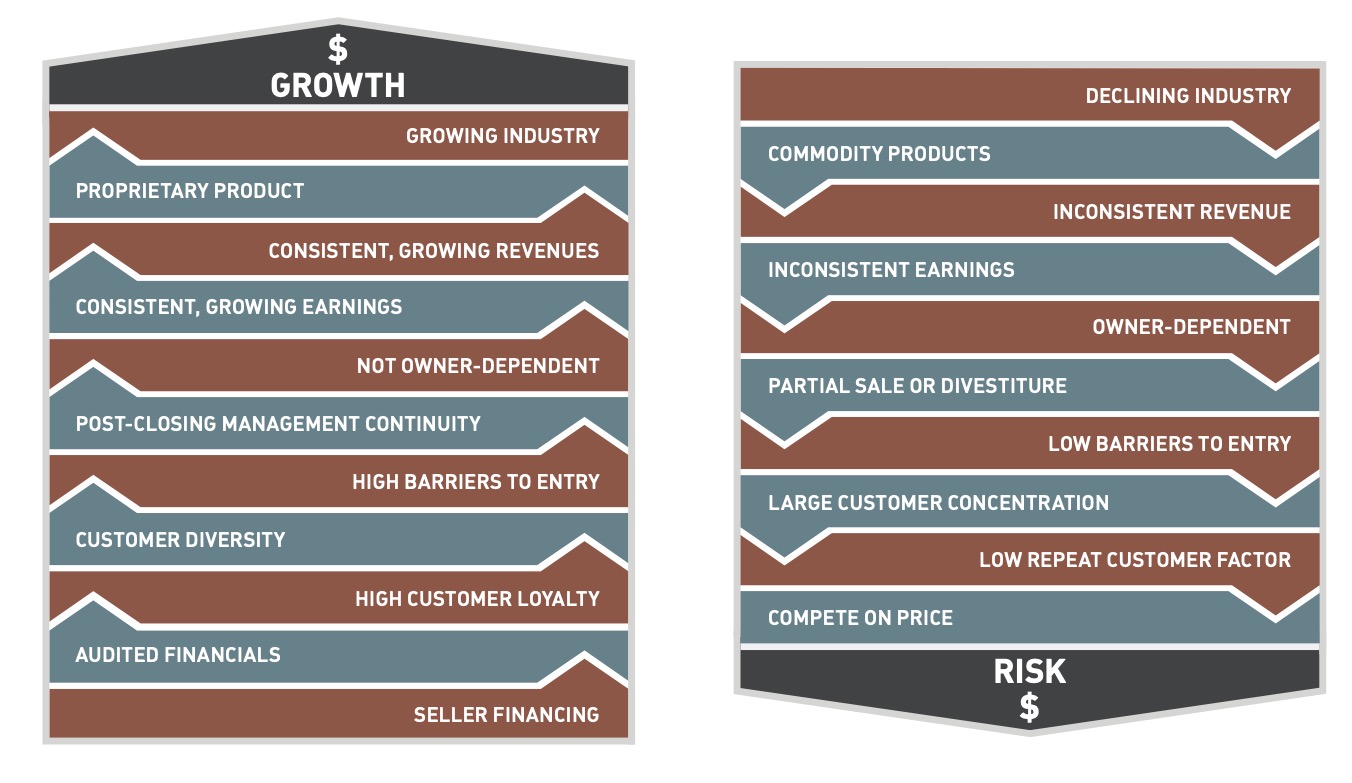
Still a seller’s market for businesses?
Roughly, 80% of privately held companies are under $5 million in revenue. These small, but mighty, companies drive 50% of the U.S. economy. These business owners are asking their advisors more and more: “Is now a good time to sell?”
A glance in the rearview mirror
Seasoned entrepreneurs remember 2008. During the 2008 financial crisis, the sales of main street companies were devastated. Banks tightened lending, business revenue and profitability declined, which depressed business values, and business buyer confidence dropped. Business owners who had planned on selling at that time, had to wait two or three years, while their businesses recovered to pre-2008 values. So, is this what sellers should expect for 2023?
Before jumping to the latest economic concerns, consider that other crisis: COVID-19. To talk about current economic conditions without talking about COVID-19 is like talking about World War II without discussing Pearl Harbor. COVID-19 was an unprecedented shock to our economy. Economies won’t realize all the consequences for years. But here’s what business advisors do know from business interactions during this time:
- COVID-19 hurt some businesses and helped others, especially industries deemed “essential.”
- The pausing of the economy caused severe supply chain issues.
- Business owners who successfully navigated COVID-19 were still able to sell their companies.
Sunbelt Business Advisors had a record year of business sales in both 2020 and 2021. We found that business buyers still very much wanted to buy. And unlike 2008, lenders were lending. Yes, it caused great disruption, but banks largely compartmentalized COVID-19 months, treating them as a one-time event. They focused, instead, on a company’s performance as it emerged from COVID-19.
Buyers and lenders continued to do what they have always done: look to the probable future performance of the company. They looked closely at value drivers such as customer concentration, systems and processes, and employees and management (see diagram). If the growth opportunities were good and the risk was reasonable, buyers bought and lenders lent.

The effect of today’s economy
Over the course of the pandemic, the government injected over $6 trillion into the U.S. economy. Consumers were sitting on an historic amount of cash. Economists hotly debated whether it was this historic government spending or the supply-chain disruptions that drove inflation. No doubt, COVID-related supply shocks have caused some price increases. However, supply constraints do not cause the same across-the-board price hikes that true inflation causes.
Why do inflation and interest rates matter to business owners and buyers? Most buyers, whether individuals, private equity groups or strategic buyers, typically use some combination of equity (cash) and debt. Rising interest rates make that debt more expensive. Buyers may have to put in more cash or sellers may have to carry more seller financing or other buyer-friendly terms. If a business is recession-sensitive, a decline in sales or profitability could lead to a cooling of buyer interest and/or bank interest in your deal.
The good news
- If a business is profitable and expected to remain profitable, it is almost always sellable.
- Business buyers outnumber business sellers by an enormous ratio. In the Midwest, Sunbelt Business Advisors launched approximately 20 new businesses for sale per month. At the same time, we receive 200-300 buyer inquiries every month.
- A record amount of capital remains in the market.
- Profitable businesses are still selling, often with multiple offers.
- Multiples in some high demand industries have grown, indicating a flight to quality as buyers become more discerning.
A profitable business is almost always sellable. Buyer demand remains high. Banks remain highly interested in business loans. COVID-19 did not dampen buyer demand. A recession will make some buyers more cautious, but unlike 2008, buyer demand will remain strong.

Chris Jones
Chris Jones is president and co-owner of the largest business brokerage firm in the country, Sunbelt Business Advisors. Jones has been selling companies for over two decades across diverse industries. He believes that private business ownership is part of the American Dream and that by helping transfer business ownership, we help our communities, economy, and future generations.